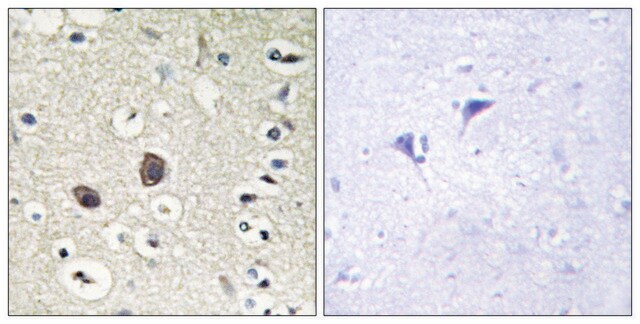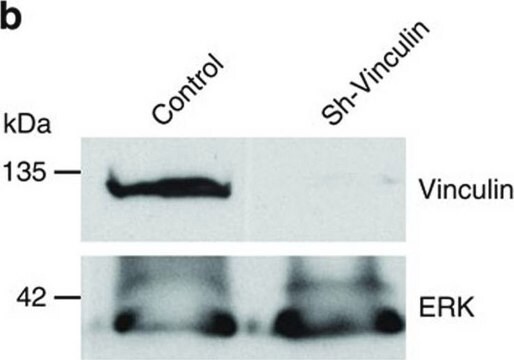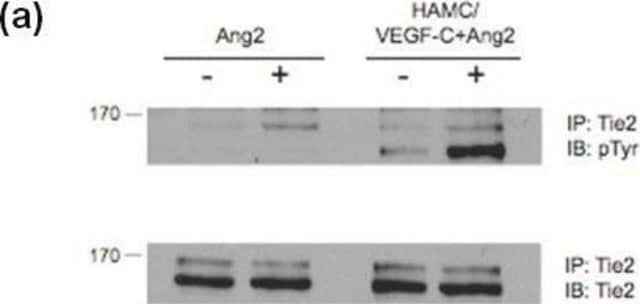05-584
Anti-Tie2/TEK Antibody, clone Ab33
clone Ab33, Upstate®, from mouse
Synonyme(s) :
CD202b antigen, TEK tyrosine kinase, endothelial, Tunica interna endothelial cell kinase, Tyrosine-protein kinase receptor TEK, Tyrosine-protein kinase receptor TIE-2, p140 TEK, soluble TIE2 variant 1, soluble TIE2 variant 2, venous malformations, multip
About This Item
Produits recommandés
Source biologique
mouse
Niveau de qualité
Forme d'anticorps
purified immunoglobulin
Type de produit anticorps
primary antibodies
Clone
Ab33, monoclonal
Espèces réactives
human, rat, pig, mouse
Fabricant/nom de marque
Upstate®
Technique(s)
immunohistochemistry: suitable
immunoprecipitation (IP): suitable
western blot: suitable
Isotype
IgG1κ
Numéro d'accès NCBI
Numéro d'accès UniProt
Conditions d'expédition
wet ice
Modification post-traductionnelle de la cible
unmodified
Informations sur le gène
human ... TEK(7010)
Description générale
Spécificité
Immunogène
Application
Immunohistochemistry: Reported to detect Tie2/TEK in frozen, Triton-treated sections.
This antibody is not suitable for paraffin-embedded sections.
Qualité
Western Blot Analysis: 0.2-1 μg/mL of this antibody detected Tie2/TEK in RIPA lysates from HUVEC cells.
Description de la cible
Forme physique
Autres remarques
Informations légales
Vous ne trouvez pas le bon produit ?
Essayez notre Outil de sélection de produits.
En option
Code de la classe de stockage
10 - Combustible liquids
Classe de danger pour l'eau (WGK)
WGK 1
Certificats d'analyse (COA)
Recherchez un Certificats d'analyse (COA) en saisissant le numéro de lot du produit. Les numéros de lot figurent sur l'étiquette du produit après les mots "Lot" ou "Batch".
Déjà en possession de ce produit ?
Retrouvez la documentation relative aux produits que vous avez récemment achetés dans la Bibliothèque de documents.
Notre équipe de scientifiques dispose d'une expérience dans tous les secteurs de la recherche, notamment en sciences de la vie, science des matériaux, synthèse chimique, chromatographie, analyse et dans de nombreux autres domaines..
Contacter notre Service technique






